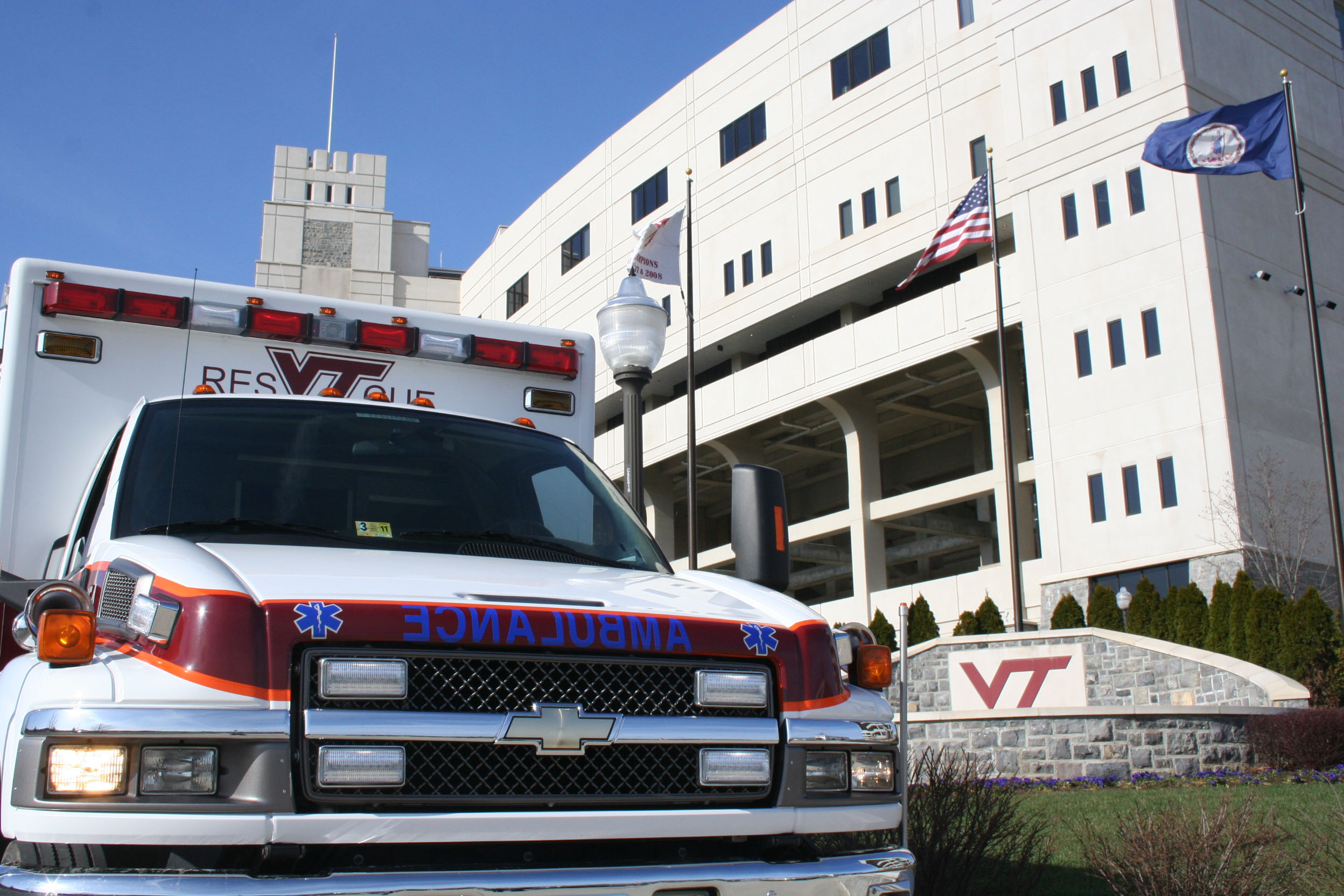Virginia Tech Rescue Squad appoints new captain, provides emergency medical service to university community

Volunteering to save lives doesn’t often come with the normal duties of being a student, but for Capt. Bob Almon and the Virginia Tech Rescue Squad it is an everyday occurrence.
Almon, of Baltimore, Md., a senior majoring in industrial and systems engineering in the College of Engineering, was recently appointed as captain of the Virginia Tech Rescue Squad. The oldest collegiate rescue squad in the commonwealth, the Virginia Tech Rescue Squad has been providing emergency medical training (EMT) and experience to those interested in emergency medicine since 1969.
For Almon, it was “just something I always had an interest in, I would see the sirens go by and just think that is something I really want to do.” As part of a high school program, he interned with an EMS agency in Baltimore, Md. and it provided just enough exposure to pique his interest.
Not missing any opportunity to become part of a rescue squad, Almon signed up for Virginia Tech Rescue Squad training at the orientation table before the start of his freshmen year. “There has always been a lopsided balance toward the squad,” says Almon. “I try to learn as much as I can in class because I treat my time at the station as if it were a regular work day.”
Student volunteers spend an average of 8 hours to 14 hours at the station daily, depending on what shift their crew is working. After dinner is made and eaten as a team, it’s time for practice exercises and training drills, among the other normal homework that needs to be completed for class the next day. In addition to daily time at the station, active members are also required to cover all athletic and entertainment events on campus.
“Taking someone else’s life in your hands is a big responsibility for someone who is 20 years old, so all of our active members have to receive extensive training and be on probation for a semester before becoming a permanent member of the squad.”
All 45 active student members are certified in using an automated external defibrillator or AED device, a portable electronic device that automatically diagnoses and treats cardiac patients; CPR; and EMT Basic training, which is a semester-long course. If a member wants to become cleared as a medic, they must also complete the EMT Intermediate training, which is a year-long course. In addition to this training, captains must complete an Incident Command System (ICS) 300 course and an ICS 400 course.
Not only does a captain require more training, but they also oversee all administrative and operational officers within the squad. Acting as a liaison between the squad and the university, Almon also acts as the budget coordinator for the organization.
The squad is primarily funded through the university student health fee, but it also relies heavily on donations from the university and the community to supplement the budget. In addition to donations, grants also provide almost half of the total funding received annually.
The squad recently acquired four new vehicles aimed at enhancing preparedness and EMS response capabilities. The newest vehicle, a 2009 E450 Ford ambulance, was donated by the General Federation of Women’s Clubs of Virginia in May as a result of a two-year fundraising drive.
As captain, Almon says he hopes to continue increasing training and EMS capabilities, as well as the relationship with other local rescue squads. Virginia Tech Rescue Squad not only runs practice drills with Blacksburg Fire and Rescue, but they try to get together for picnics and softball games as well.
Personally, Almon just “hopes to graduate with a decent grade point average (GPA).” In the future, he aspires to merge his engineering degree and medical training to become a biomedical engineer.
“Volunteers usually stay with the squad for an average of three years, they rarely give it up. We’re a pretty tight-knit group -- they are my best friends,” says Almon.
Almon says that he would like to stay on as captain for another year, if time and the organization allow for it. “The rescue squad has given me the confidence, ability to perform well under pressure, a new level of professionalism, and the ability to stay level-headed enough to tackle those sorts of situations.”
Written by Krystyne Hayes. Hayes, of Front Royal, Va., holds a Bachelor of Arts in communication from the College of Liberal Arts and Human Sciences.




